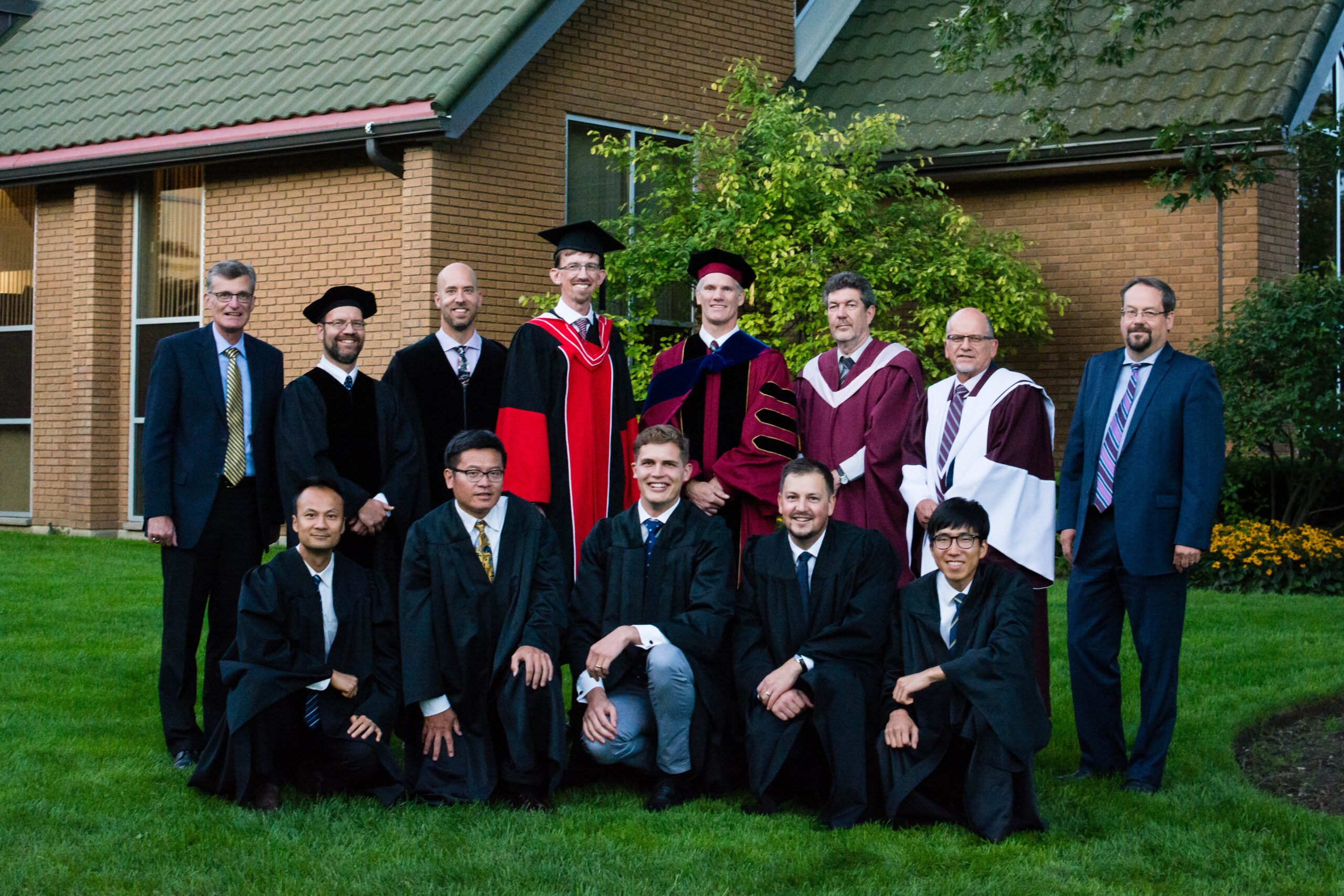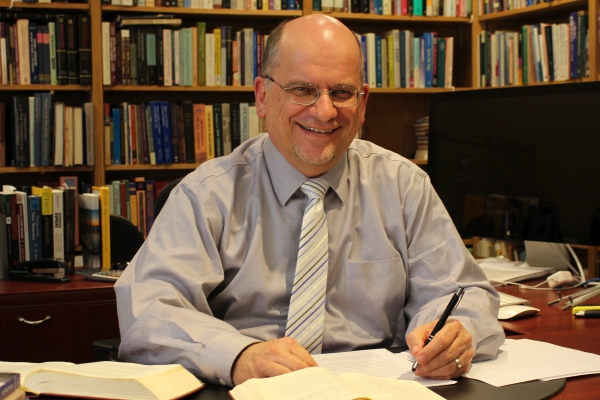All Resources
Concerned with an apparent shift among conservative scholars to answer in the negative, Cornelis Van Dam argues that reading Genesis 1 and 2 as history is not only justified but necessary. Van Dam clarifies the different roles that ancient Near Eastern literature and scientific theories should play in our understanding of the Bible as he carefully deals with the exegetical details of the first two chapters of the Bible.
March 15, 2021The 51st anniversary meeting and 46th convocation of the Canadian Reformed Theological Seminary. Featuring the keynote address “Grace and Peace” by retiring faculty member, Dr. G. H. Visscher, and the installation of new faculty member, Dr. W. denHollander.
September 11, 2020This book records the written and oral debate of several seminary professors of Reformed Protestant persuasion. In it they discuss the contours and details of the theology of the covenant as it has developed particularly in the Canadian Reformed and United Reformed Churches of North America, in an effort to promote church unity. Co-edited with John A. Bouwers.
June 2, 2020What position should the children of believers have in the church today? And how should this affect the ways in which we nurture them? The authors of this volume share the conviction that children of believers belong to God, and thus ought to be baptized and treated as members of the church, wherein they are called to faith and obedience along with the adults. The contributions in this volume substantiate this foundational conviction through investigations in Scripture and history, and make it clear that the matter of children in the church remains a pressing concern, worthy of our continued attention and energy.
June 2, 2020The office of deacon is God’s gift to his church to ensure that all can share in the liberating joy of redemption, but today it is often undervalued, misunderstood, and perceived to be of little importance. In The Deacon, the author considers the Old Testament background for this calling, the deacon in New Testament times and in church history, and the current function of the office. You will rediscover the high and privileged calling of deacons and come to a better understanding of what God requires of them.
June 2, 2020Struggling Christians are often drawn to the book of Job, which relates how a suffering child of God wrestled with the problems that threatened to overwhelm his life. We can easily relate to Job’s distress and questions. But what is the main teaching of this part of God’s Word? These sermons show that the focus of the book of Job is on God’s faithfulness to his work of renewal in spite of satanic attacks and human stumbling. This gospel is the true source of hope and comfort for all who experience earthly trials. This book can be used for personal enrichment and encouragement, as a study guide with questions included, or for public worship with liturgy provide.
June 2, 2020In this final chapel of Dr. Gerhard Visscher, he mentions to the CRTS community that he started teaching in that week when the twin towers of New York came crashing down. He ends using Zoom because of the threat of Covid-19.
In these kind of times, we might wonder about the love and goodness of God. Where is He in all this?While not endorsing all that Miroslav Volf writes, he shows how the writings of this Yale professor are quite helpful for us.
We wish Dr. Visscher and his wife Teny the Lord’s blessing as he retires after 19 years of teaching at CRTS and over 40 years of ministry.Have a listen if you like….
May 5, 2020Ressources chrétiennes is a website that makes Reformed resources available for the French speaking world. In this presentation Rev. Paulin Bédard explains the character and global reach of the website, as well as future projects that he is working on.
January 23, 2020At a conference that focuses on world mission, we cannot ignore the fact that in many ways the world is coming to Canada. Each year more than 250,000 people from other countries receive permanent resident status in Canada. This has led to the establishment of many immigrant communities (and new mission fields!) in and around Canadian cities. Revs. Tony Zekveld and Matthew Vanluik have been involved in efforts to reach these “new Canadians” with the gospel, Rev. Zekveld by way of planting a South Asian congregation in Mississauga, Rev. VanLuik by way of integrating immigrants in an existing church in Brampton. In their presentations they reflect on their respective missionary methods.
January 23, 2020At a conference that focuses on world mission, we cannot ignore the fact that in many ways the world is coming to Canada. Each year more than 250,000 people from other countries receive permanent resident status in Canada. This has led to the establishment of many immigrant communities (and new mission fields!) in and around Canadian cities. Revs. Tony Zekveld and Matthew Vanluik have been involved in efforts to reach these “new Canadians” with the gospel, Rev. Zekveld by way of planting a South Asian congregation in Mississauga, Rev. VanLuik by way of integrating immigrants in an existing church in Brampton. In their presentations they reflect on their respective missionary methods.
January 23, 2020If you talk about the need global missions in Canada today, someone will inevitably share the popular perspective that significant investment of money and time into supporting foreign missionaries is no longer necessary because the nations are now on our doorstep and in our neighbourhoods. In this talk, I hope to expose the fallacy of this line of thinking, and demonstrate that global missions must in fact be more of a priority for us. To do this, I will survey the state of Christianity and missions around the world, share what other conservative, Reformed churches are doing to fulfil the Great Commission, and consider the state of “foreign mission mindedness” among our churches. Throughout, I will draw on my experiences as a pastor in Canada and as a missionary in Papua New Guinea.
January 23, 2020The apostle Paul worked tirelessly among the churches he had planted but he never lost his zeal to take the gospel to new areas where Christ had not been proclaimed (2 Cor. 10:16). At the beginning of a conference on world mission it will be good to reflect on Paul’s missionary approach. We will focus especially on the balance he maintained between planting churches in new areas and nurturing the churches he had already planted.
January 23, 2020











